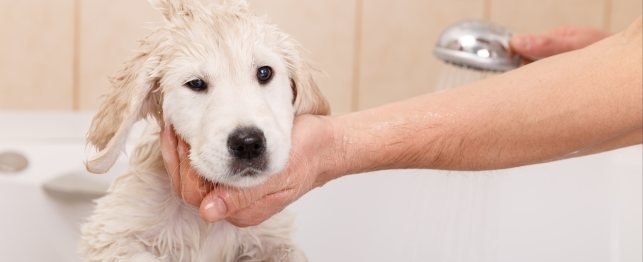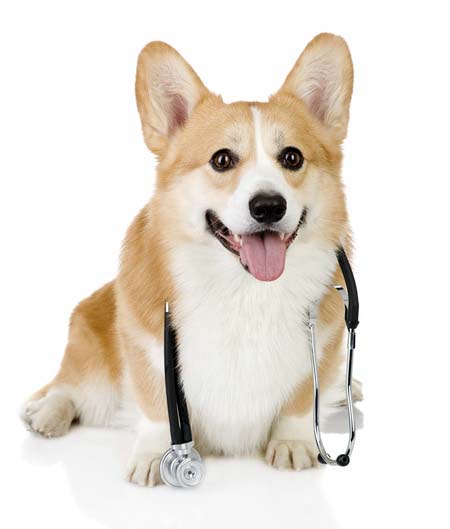Most dog owners know that dogs are naturally protective of food. Most parents of young children are terrified that their young ones will be too curious about a dog's food and end up paying the consequences in pain. Bites like this at such a young age often cause children to have lifelong fears of dogs. To keep your dog from becoming the accidental force behind such fears, you need to teach him when he is still a puppy that it is not necessary to protect his food. Once puppies learn that food can be taken and they will still have their hunger fulfilled, they accept children's curiosity without any aggression.
"My brother and sister in law seem to be experts in procreation," one Miniature Pinscher owner says, "I knew when I purchased my Minpin [Miniature Pinscher] that I would have to teach her to let the little ones reach into her food bowl. It would have killed me to see my dog bite one of my nieces or nephews. I'm glad I did because, instead of the two small children they originally had, my Minpin has now gone through four sets of tiny hands reaching for food, toys, and treats. She's never even growled at one of the kids and my brother and sister in law aren't ever worried about their children being near my dog."
In order to teach her dog to share, which is not a natural behavior in dogs, Kelly and her own children (both much older) would regularly remove food from the puppy's bowl (while she was eating), returning it after a short time. They also did this with treat, raw-hide chews, and toys. The result was the ability to leave her dog around her young nieces and nephews (and other children) without fear for the children. "It's definitely not an overnight process," Kelly says. "It took a couple of months of repeatedly taking things and food away from her when she had them, then giving them back, but she learned well and my friends and family don't fear that their children will leave with bite marks."
How Can You Tell if Your Dog Has Worms?
The best way to find out if your dog has worms is to have your vet find out. He will take a fecal sample and test it to find parasites lurking. While you are there, you may want to have your dog tested for heartworms, which can be fatal if not treated early enough. You may have heard the dry hacking cough that some dogs have. This is usually a sign of heart worms in more advanced stages. This will take a blood sample, but, after testing (provided the test is negative) you will be able to put your dog on a heartworm preventative treatment to be taken monthly, which should give you some peace of mind. There is one other way to know if your dog has various intestinal worms. This is by looking at his stool. Some varieties of worm are visible to the naked eye, but others are not, which is why the best test is through your dog's vet. The following worms are the most common intestinal worms:
Hookworm, these parasites lay eggs in the intestines which are transferred to the ground through bowel movements. The eggs hatch in the ground and are passed from here to animals. Your dog can contract this parasitic infestation very easily and it can be passed to humans through open wounds, usually on the foot.
Roundworm, the commonality of these worms is second only to tapeworms. These are worms that can be seen with the naked eye; they resemble angel hair pasta.
Tapeworm, spread through ingestion of the eggs, whether through infected fleas or through feces, these are the most common worm for your pet to acquire. Visible signs are rice like egg segments that may or may not be moving. These are found in the anus or in the stool.
Whipworm, these worms are spread through ingestion of feces and reproduce approximately every three months, with the eggs passed through bowel movements. The get their name from their looks: long and shaped like a whip.

 Bathing Your Puppy
Bathing Your Puppy
Bathing Your Puppy
Bathing Your Puppy
 What Your 12-month-old Puppy Needs
What Your 12-month-old Puppy Needs
What Your 12-month-old Puppy Needs
What Your 12-month-old Puppy Needs
 How You Can Tell if Your Puppy is Sick
How You Can Tell if Your Puppy is Sick
How You Can Tell if Your Puppy is Sick
How You Can Tell if Your Puppy is Sick
 Dog Licking Paws: Natural Remedies
Raw paws are often the red flags of
Dog Licking Paws: Natural Remedies
Raw paws are often the red flags of
 The Danger of Driving with Dogs
The Danger of Driving with Dogs
The Danger of Driving with Dogs
The Danger of Driving with Dogs